Intro
According to the government, three of the six grandchildren are no longer Dutch. A family separated by nationality. It is stated that the children have lost Dutch nationality together with the father. But is that the case? We don’t think so.
The full story…
Antonius and Matilde Zuidwijk decided to discover the world. That sounds nice, but in the 50s and 60s the reasons were not the same as they often are today. Besides the fact that the Dutch government actively pushed Dutch citizens towards the migration route and citizens were an (excellent) export product, the reasons were diverse. The Dutch economy was not strong, little to no jobs, people were afraid of a 3rd world war, housing shortage and many other such reasons were often hidden behind the adventure. About half a million Dutch citizens left between 1946 and 1969, about 4% of the population. Many returned later, but many others (practically) could not and had started a new life elsewhere. The ties with the Netherlands often remained. You could see that from the many (boat)-trips that people still made every few years, despite the high costs. You also saw it from the many local Dutch migrant organisations, clubs and even Dutch schools in the destination countries.
(in Dutch:) The Dutch law and why the Zuidwijk children are still deemed to be Dutch.
What is going wrong here with RWN Art 16 paragraph 2e?
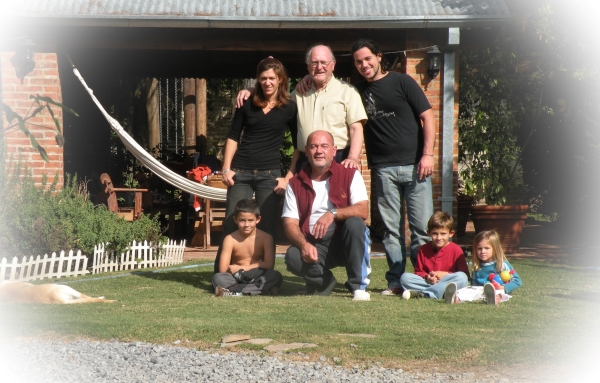
Grandpa Zuidwijk, Congratulations on your recent 90th birthday!
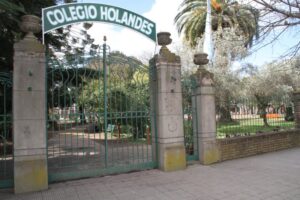
Welcome to Argentina 1956
At the time Antonius was even better off than most with his, not so well-paid, job as a young deck officer in the Dutch merchant navy. When he docked in Argentina, he was welcomed by the Dutch community there and was offered a better job. The Argentine economy was good and when Antonius accepted he was for the first time able to send enough money to support his mother in the Netherlands. Yes, the Argentine economy, and that of other migration countries, took care of many mothers in the Netherlands.
It was not an easy life but a beautiful and welcoming country. Mathilde and Antonius had a son, whom they gave a beautiful Argentine name, Guillermo. Guillermo Zuidwijk was born in 1964. He was brought up with a Dutch culture and affinity for the homeland from an early age. No new opportunities to return to the Netherlands arose, and the young family remained in Argentina. At times of homesickness the family found support from the local Dutch community.
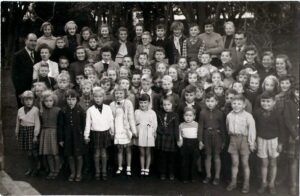
To the Netherlands. 1978
But Argentina went later through a difficult period, the so-called dirty war, and in 1978 Matilde passed away. The family, also in the Netherlands, was very affected by this loss and Grandma crossed the Atlantic Ocean to pick up Guillermo. Then 15 years old she took him to the Netherlands. Guillermo received his first very own Dutch passport as a minor and was proud of it. (At the time children were mostly added into a parent’s passport).
Dutch, Argentinian or both?
But once in the Netherlands, after having lived there for a while, he started to get homesick for his father and his life in Argentina. On the other side he also felt very much at home in the Netherlands and did not know what to do. Guillermo decided to go back and see if he could get his father to return to the Netherlands as well. Once in Argentina his father had to disappoint him because there were many practical/economic reasons why this was not the right time. “Maybe later” , the idealistic young man was told by his father.
Settled but still Dutch.
But later it didn’t really happen. Guillermo decided that when he was older he would return himself. Guillermo became an adult at age 21 in 1985. Love came around the corner and he later married and had children. These children also got the benefits of a Dutch family life with a strong local Dutch community, clubs, family stories, photos, trips, etc. Instinctively, the family does not see itself as typically Argentinian, or typically Dutch. They have two cultures and both sort of a mother- and father-land.
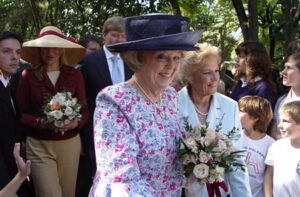
Which change of law? 1985
The Dutch embassy in Argentina used to be very good at informing the Dutch in the country about events, assisting with official consular acts and issuing passports, etc. But when the Dutch nationality legislation changed in 1985, there may have been confusion. Because Antonius and Guillermo were never told about the possible loss of Dutch nationality, despite visits to the embassy etc. Father Antonius has always remained Dutch and son Guillermo was also considered to be Dutch from birth. Father Antonius was proud of that. But unfortunately, at some point it became clear that Guillermo had lost his nationality due to the 2nd version of the so-called 10-Year Clock. At the time, this depended on where you lived and not your Dutch passport. So when he turned 31 in December 1995 it was too late. This was his first loss of Dutch nationality, yes unfortunately, read on.
Repairing Dutch nationality. 2003
Fortunately, the law changed again in 2003 and the Zuidwijk family heard about this change through family in the Netherlands. Again, not from the embassy. Guillermo got in touch and asked at the embassy if he could regain his nationality. Yes that was possible, how was not really explained. Guillermo therefore filled in the forms that were given to him, for the record he also added all his children to the form (a wise move), and was consequently Dutch again. He was then able to get a new Dutch passport. In June 2003 Guillermo was again the proud owner of a Dutch passport. His children could also get their Dutch passports. Guillermo’s father, now a Grandpa, was proud and happy.
Which new Clock? Version 3?
What the embassy didn’t tell Guillermo is that with the change of law a new version 3 of the 10-Year Clock started. Despite all his questions, and his request to become a Dutch citizen again, he was merely told that the old law had ended and he now had his nationality back. Guillermo and family were of course happy to regain the nationality. Despite the many calls and visits to the embassy, each time explaining the importance to the family, the embassy staff failed to explain that a new Clock had started on the date of issue of Guillermo’s last passport. A new version Clock with now different terms and conditions than the previous law. Of which they now knew that this law had stopped. The family, so clearly misguided, was not aware that Guillermo would again lose his Dutch nationality 10 years later.
Second loss of Dutch nationality 2013
Yes in June 2013, 10 years after his last passport was issued, Guillermo lost his Dutch nationality for the second time without knowing it, without warning, etc. Guillermo did not get a new passport at the time when his old passport expired. He thought that as he couldn’t travel because of the then difficult economy there was no need for a travel document. And for most countries and situations this is indeed the case. You do not need to have a passport/travel document if you are not going to travel. But yes, for the Netherlands that is not for everyone always the whole story.
Passport application and sent away 2016
When in 2016 things were economically better for the family they considered family visits and a holiday in the Netherlands. Guillermo went with his children to the embassy to apply for new passports. Only two of Guillermo’s children’s requests were taken in. Guillermo and his youngest daughter’s applications were not even accepted and they were turned away from the counter. However, the embassy did say they would check with the Dutch Ministry of Foreign Affairs (head office) to see if the youngest daughter could come back later for her Dutch passport. Finally, Guillermo received a phone call where he was reprimanded and told he should have applied earlier for a Dutch passport and that there was now no new possibility for him to regain his Dutch nationality. No, you are no longer Dutch, “period!” And a warning was added that getting visas would not be easy either, because he could be suspected of wanting to stay in the Netherlands, risk of settlement. Guillermo would have to prove that he was going back to Argentina, had a good income there, expensive travel insurance for the whole family, and then… maybe, maybe not. It didn’t sound very friendly.
The embassy could of course have suggested that Guillermo could regain his nationality after first living in the Netherlands for a year. But that was not mentioned. This while it was very clear how important this was for the Zuidwijk family. But then again, even if Guillermo had known that, with school-age children, a divorce, work, etc., it would have been difficult. A holiday to family is one thing, moving is quite another. Other than the phone call, Guillermo or his children never received a formal reply by letter or email. Not even on the two applications that were formally accepted and paid for. “That’s it, period!”
Too late for himself
Guillermo has now resigned himself to being too late. Despite the fact that he still feels a strong bond with the Netherlands, his family there, his life has developed in Argentina and as a 57-year-old he no longer sees himself settling in the Netherlands. Applying for hard to get visas to visit family is maybe what it should be. Hopefully they will get visas.
Grandpa Antonius, still only Dutch and living in Argentina, does not agree with this. He thinks his son is just a Dutch boy.“Why are they so difficult? I am still Dutch, why not my son? He has not asked for the Argentine nationality, neither have we as parents. It was imposed on him as a baby because he was born in Argentina. That was more my fault, not the fault of a newborn baby. He can’t even give up his Argentine nationality, that’s not allowed. The Dutch Queen (Maxima) is even still Argentine. So why can’t my son remain a Dutch citizen and also maintain ties with his family there? If only he had chosen this himself, or had done something wrong, or… but he is a good Dutch boy who also feels Dutch. That’s how I raised him. I felt myself pushed out of the country in the 1950s. Now my son is also being stripped of his birthright without warning. I think the Netherlands is getting scary! As if the Nazis are back!”
Dutch grandchildren
But fortunately Guillermo’s children also received their Dutch nationality in 2003 and for them the same 10-Year Clock has not yet expired, after all, this Clock is only for adults. And just as Guillermo spent some time in the Netherlands as a young man, he also hopes that his children will build up the same kind of appreciation for the Netherlands and maybe be able to study there for a while as Dutch people. At least that was what he’d always wanted for them. Two of his children are now studying medicine and considered in the future to continue studying medicine, a specialization, in the Netherlands. The Netherlands has a shortage of doctors, who knows how the future would have unfolded? Perhaps the Netherlands is missing the boatn here.
Because organizations such as Nederlanders in den Vreemde, the Stiching GOED and SNBN have in recent years paid more public attention to all those people who often unexpectedly and unknowingly lose their nationality, this also came to the attention of the Zuidwijk family. The government itself states that every year there are about 2000 people whom they refuse passports and see as old-Dutch citizens. Sorry, “old-Dutch” is a term the government likes to use for the “former Dutch” nationals, like these kids.
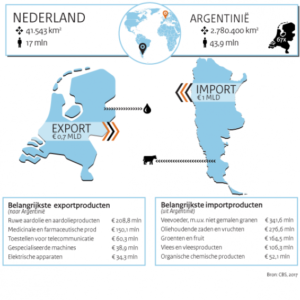
New applications 2021
Because it became clear to the family that errors are made, or the government has not considered all aspects and documentation, and people sometimes incorrectly are refused passports, the family has nin 2021 applied again for passports for the children. In the hope that the government will understand how the law should be read.
But not all still Dutch?
Guillermo’s children, the grandchildren of Antonius, are no longer regarded as Dutch by the government. That’s what they were told. “No. Your minor children lost their Dutch nationality together with you.” Fortunately, in 2013, a number of children were already adults. Three out of the six children are still Dutch. The younger children, according to the Ministry of Foreign Affairs, are therefore no longer Dutch. The Grandpa, brothers and sisters, family in the Netherlands, but not Papa and the little ones anymore. “The state is dividing up families,” as someone commented.
But is that the case? Or is the government wrong?
Another paragraph in the Dutch nationality law states that children do not lose their nationality if “the minor was born in the country of the nationality he got”.
Interpretation or confusion?
Yes, says the government, but that does not apply to these children. Because they automatically acquired the other nationality at birth and not later by their own, or the parents’ own, choice. According to the government’s interpretation, automatic acquisition by operation of law rather than voluntary acquisition makes a difference here.
The children were given the Argentine nationality at birth, without being asked, and they are not allowed to give it up, just like the Queen. And then they are punished for this? But if it had clearly been their own choice to get the Argentine nationality, they would have been allowed to remain Dutch!? That doesn’t sound right, does it? Did the politicians have that in mind when they voted for this legislation?
The question.
Yes, we state that these children are still Dutch in according with the law. The current state of affairs is that Guillermo and his children have lodged an appeal and that is now with Justice. Justice now asks Guillermo why “The nationality acquired” could also indicate automatic acquisition instead of voluntary acquisition. “I find no indication of this in the legislative history or in the explanation,” says the lawyer of Justice.
Just one single word
Unfortunately, this is about how the word “got” can be read in the legislation. The government sometimes sees the word “got” in this context only as voluntary acquisition through one’s own choice/action, and not the automatic acquisition of nationality. What is the difference in this? With voluntary choice, you ask for it and act on it, eg naturalization, option or registration, etc. With automatic acquisition one sometimes incorrectly thinks that the term “by law” means automaticity, eg getting the nationality automatically at birth in the country. This is how some officials see this difference, but is that the case? We, and a number of lawyers, think not. You can find a detailed Dutch explanation here. You can see why we think differently about this one word and this paragraph in law. Grandpa Antonius sometimes wanted to explain it simply and said, “I used to ‘ get’ a slap on my head. I wouldn’t have asked for that voluntarily, would I?”
Without a Dutch passport still loss of nationality for the children?
The passport applications were recently rejected in first instance. “And now we are appealing that decision. If that doesn’t work, we have to go to court or even higher up. And that may not be something I can afford,” says Guillermo. “That sounds expensive. I really want to consider that for the sake of my children. I understand it’s too late for me unless the law changes again. But I think it is very important for my children that they also get their Dutch side of the family. And our identity is also closely related to nationality. What I am really concerned about is that the children will later lose their nationality just like me.”
If the children do not receive a passport, they will still lose their Dutch nationality when they turn 28, just like Guillermo. This then due to that other article in the law, the so-called 10-Year Clock version 3 . And unfortunately for the law it doesn’t matter if they have submitted a passport application and the government is or was wrong. The Clock only restarts on the date of issue of a passport. This way, the children can still lose their Dutch nationality because of the government’s reluctance.
Guillermo was never well informed about the earlier 10-Year Clocks versions 2 and 3. But even now that he knows more, the children still run the risk of loss due to the government’s misinterpretation of the law. It feels to the family that the government maybe prefers not to have half-Dutch half-foreign, citizens. Guillermo therefore wondered “if I had had a typical Dutch first name, just like my father and son, would they have been so difficult and informed and treated me so poorly?”
The complex Dutch nationality law is a monstrosity
And in basically, the Zuidwijk Family’s findings are somewhat correct in that. Even the previous government wanted to stick to the single nationality principle of 1892. Perhaps it would rather not see citizens who have family ties abroad. Nevertheless, Dutch legislation has been adapted over the decades to protect such families and children against these kinds of situations. This may have initially come from international treaties rather than from the Netherlands itself, but still.
There are today more reasonable exceptions to the single nationality principle than there used to be. However, this has also at the same time made the law very complex. With conditional exceptions, and exceptions to exceptions, etc. Even government employees have often been found making errors and a professor called the current nationality legislation even a monstrosity.
The Netherlands is one of the last Western/European countries that still adheres to the single nationality principle that was included in the first Dutch nationality legislation in 1892. From the British in 1948 to Norway in 2019, most countries have changed their laws and now allow multiple nationalities. Academic research shows that fear of abuse or loyalty issues are unfounded and should not stand in the way of dual nationality.
Convention on Limitation of Cases of Multiple Nationality and on Military Obligations in Cases of Multiple Nationality, Strasbourg (1963/1993).
The Netherlands is also one of the last countries still in this treaty. Most countries have already withdrawn from that treaty. In the treaty it is very clear that adults, and children, can lose their treaty country’s (NL) nationality if they voluntarily assume the nationality of another treaty country. Fortunately Argentina is not a treaty country, almost no one is. But in addition, Guillermo and children have not lost his nationality because he has voluntarily obtained the Argentine nationality through naturalization, option or some other form of recovery.
No, even the opposite applies, Guillermo had both Dutch and Argentine nationalities automatically since birth. This convention states that only in those situations where the parent voluntarily takes on another nationality, minor children share in the loss of their nationality. And that was not the case for Guillermo or his children. Even the opposite, it states that if someone was born in the other country, or lived there for a while as a child, an exception is made for such children/adults. That sounds very familiar and is almost literally the exception that has been adopted into the Dutch nationality law.
Politicians, especially after a recent ruling on the disproportionality of automatic loss of nationality, are now asking questions about how the law should, or should not, be changed. Should one be proportional for all Dutch people or not? We don’t know yet how this will develop. But the fact that people ask these critical questions is certainly a light on the horizon. Unfortunately, legislative changes take time and will not come in time for families like the Zuidwijk family. Unless one also considers how people and children who have lost their nationality, unknowingly and without wanting it, can regain their Dutch nationality in a easier way. The limited options now look nice on paper, but create practical barriers.
Conclusion
So, Dutch children who are initially wrongly refused their Dutch passports! Father Antonius stated, “With this comes a lot of frustration and sadness. My sister recently passed away and without Dutch passports we could not travel during this COVID-19 period to support the family. It is already a difficult period, but with these passport problems it is an even sadder situation for the whole family.” Families effectively separated by the state.
How will this end?
Were you at that time (RWN 2003) Dutch politician then we want to hear from you !?
If you are a lawyer and you agree to this , we would like to hear from you .
To compare notes on (other) nationality laws, non-Dutch lawyers are welcomed as well.